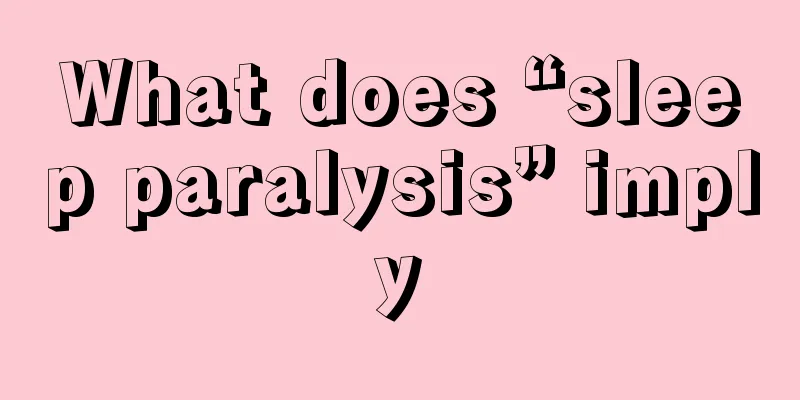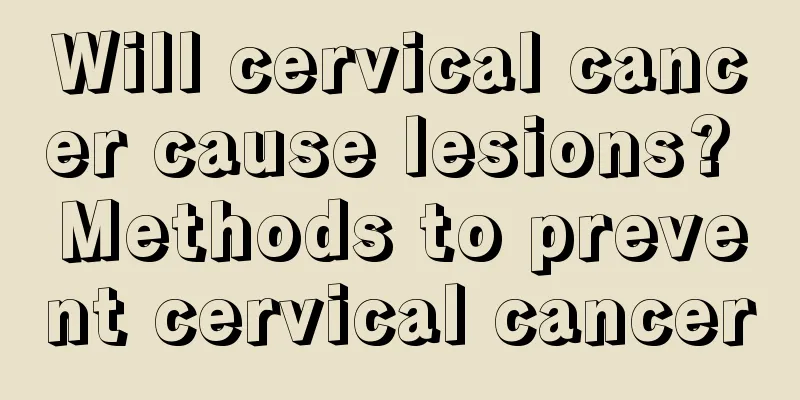What does “sleep paralysis” imply

|
Nightmare, also known as "ghost pressing on the body" or "ghost pressing on the bed", refers to the feeling that the body cannot move or speak when falling asleep or waking up, which makes people extremely panic and think that they have encountered a ghost or been abducted by aliens. Neuroscience research has found that nightmares are actually caused by sleep paralysis due to abnormal brain function. There is no such thing as a "paranormal event" at all. Most people can avoid them by simply paying attention to adjusting their sleeping habits. Feeling: Extreme panic of ghosts attacking According to statistics, the incidence of sleep paralysis in the population is as high as 6.2%. Many people experience it once a month to once a year, and many more people only experience it once or twice in their lifetime. After each attack, patients often have symptoms such as headaches, muscle pain and weakness, and become suspicious. It turns out that when sleep paralysis occurs, the patient's entire body cannot move except for the eyeballs, and he cannot even shout or control his breathing. Some people experience visual, auditory, and tactile hallucinations that feel as if they are real, and some even feel as if their souls are leaving their bodies. They are suspicious and usually feel that there are ghosts, aliens or some mysterious forces, which causes great fear. For example, some people feel that an uninvited guest has come into the room and sat on their chest, strangling them to the point of suffocation; others believe that they have been raped by a "dream demon." Research from the University of the West of England in the UK has confirmed that many people who claim to have been abducted by aliens actually suffered from sleep paralysis. Sleep paralysis usually lasts from a few seconds to a minute. Although the experience of sleep paralysis is terrifying, Professor Guo Chenchang, director of the Sleep Disorders Diagnosis and Treatment Center of the Affiliated Brain Hospital of Jinan University School of Medicine, said that patients can wake up after a while and it is not a sign of stroke. Sleep paralysis does not pose any serious health risks, nor will it cause sudden death, so there is no need to worry too much. Cause: Muscles wake up before they are ready Under normal circumstances, people's muscles are in a relaxed and weak state when they sleep, so they can avoid being driven by dreams and making movements or even sleepwalking, which could harm themselves and others. Guo Chenchang introduced that in the trance state of transition from sleeping to wakefulness, the sensory cortex of the brain wakes up first, but the motor cortex has not yet woken up, so people can hear sounds but cannot move, which leads to sleep paralysis. Why does this happen? There are many different opinions: some believe that this is due to the disturbance of the rapid eye movement sleep period, some believe that it is an imbalance in the neural nuclei responsible for regulating sleep, and some believe that it is due to hormone secretion disorders. During sleep paralysis, the brain's alertness system is activated Evolution has dictated that our alert system is more inclined to interpret ambiguous external stimuli as dangers and trigger corresponding actions - after all, "being overly cautious" is always more conducive to individual survival than "being careless". Therefore, patients are likely to think that they have encountered a ghost, which further strengthens their fear response in their extreme helplessness. Neuroscience research has found that sleep paralysis may also be a manifestation of epilepsy, migraine, anxiety disorders, narcolepsy, obstructive sleep apnea, etc. For a small number of patients, sleep paralysis may last for several hours and may recur in the future. Guo Chenchang suggested that they do an EEG, which may reveal epileptic waves. Prevention and treatment: Avoid lying on your back or it may reduce Insomnia, lack of sleep, fatigue, irregular work and rest schedules, and high psychological stress can easily induce sleep paralysis. A study by the University of Waterloo in Canada found that sleeping on your back is particularly likely to induce sleep paralysis. It turns out that when lying on your back, the soft palate in your mouth drops down, which can easily block breathing and wake up the cerebral cortex. Making some lifestyle changes can reduce your chances of experiencing sleep paralysis Including: maintaining regular sleeping habits, reducing the intake of excitatory substances, cultivating interests to cope with stress, etc. However, this has little effect on hereditary sleep paralysis. Severe patients need to take antidepressants for treatment, but these drugs are not panaceas. |
<<: Turn off the lights and do this to help you sleep well -1
>>: A human body organ must not have cancer
Recommend
Can I cure enlarged pores?
Many people are too busy to take good care of the...
What harm does small cell lung cancer do to the body
What are the harms of small cell lung cancer to t...
Is it good to squeeze blackheads? Are there any tips?
The existence of blackheads will cause bad condit...
Can gallbladder cancer be cured?
Gallbladder cancer has an insidious onset, lacks ...
Acne on the side of the nose
In addition to the forehead, the sides of our nos...
Which element promotes bone growth?
Nowadays, tall, rich and handsome men and tall, r...
How to treat foreign body in throat?
Throat diseases bring great pain to the patient&#...
What to do if you have insomnia in the middle of the night
Insomnia has always been a problem that many peop...
What causes cracked fingers?
The function of fingers is very important. They c...
What causes sour tooth roots?
Bad teeth are a concern for many people. Not ever...
How to cook rice with a smart rice cooker
With the advancement of high technology, cooking ...
How to fry celery juice
As a vegetable, I believe many of my friends have...
What to do if the meat has a bit of smell?
If the purchased meat is not stored properly, it ...
Discuss what are the early symptoms of bone cancer
In orthopedic diseases, in addition to common dis...
Finger joints are bent and cannot be straightened
We have learned since childhood to create wealth ...









